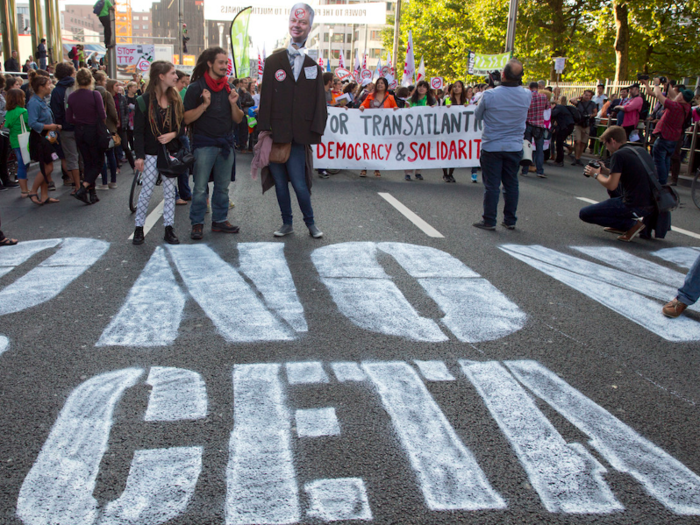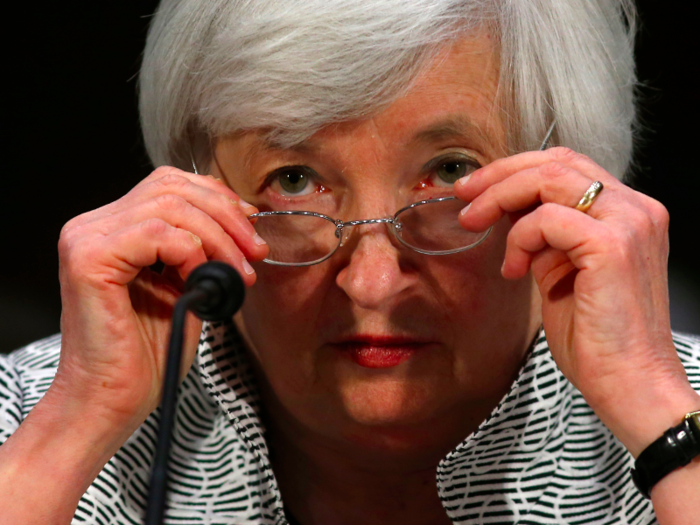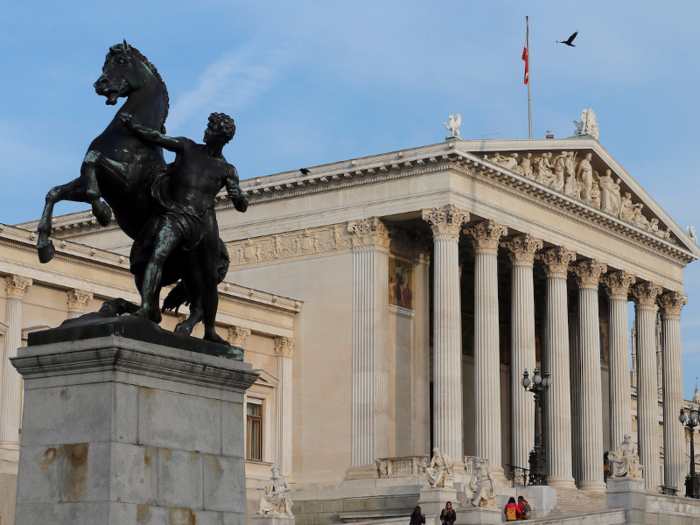The world's 19 most open, stable, and efficient economies
19. Japan — Japan may be the world's third largest economy in pure GDP terms, but it has faced many years of stagnant growth and inflation, helping to keep it relatively low on the Legatum Institute's list.

18. Iceland — Iceland's economy is one of the best in the world, according to the Legatum Institute. It has had its problems, however. During the financial crisis, the country's banking system came close to collapse, causing a major depression for around three years between 2008 and 2010.

17. France — The eurozone's second largest economy has suffered from sclerotic growth since the debt crisis began in 2009. Its problems are made worse by a hugely inefficient labour market that is highly resistant to reform. Despite this, France still remains one of the world's economic powerhouses.

16. Belgium — The home of the European Union also has a high economic sub-index score from the Legatum Institute. The country hit headlines after the small region of Wallonia threatened to derail CETA — a major bilateral trade deal between the EU and Canada.

15. Australia — Australia's economy, one of the largest in the southern hemisphere, is hugely reliant on commodities for its successes. Iron ore is a particularly important resource for the nation. Australia has gone more than 25 years without a recession, even managing to avoid the worst of the financial crisis.

14. United States — The world's biggest, most powerful economy is not its best, according to the Legatum Institute. Globally it ranks highly, but huge income inequality remains a massive issue in the land of the free.

13. Canada — America's neighbour to the north relies heavily on oil for its success, and saw GDP growth stutter after major wildfires stopped oil production in the province of Alberta. It remains an attractive place for business however, and after the election of Donald Trump, many US citizens are reportedly considering moving to the country.

12. Finland — One of Finland's biggest sources of GDP is the paper industry, owing to the country's enormous number of trees. The country is known for its sometimes off-the-wall economic policies, and has instituted a major basic income experiment in recent years.

11. Austria — Another European nation to feature in the Legatum Institute's top economies, Austria has the world's 29th largest economy, despite having a population of less than nine million.

10. United Kingdom — Brexit may be expected to hit the British economy hard, but Britain largely remains an economic success story, and is expected to grow at the fastest rate of any major global economy in 2016.

9. Luxembourg — Famed as a home for bankers and people looking to pay as little tax as possible, Luxembourg punches well above its weight globally. The nation of fewer than 600,000 people has one of the three highest GDP per capita rates of anywhere on earth.

8. Singapore — The Asian city state is not only a major financial centre, but also one of the world's two busiest ports. More than 32 million containers of cargo are processed by the Port of Singapore every year.

7. Norway — Norway's economy is hugely reliant on the North Sea oil industry, meaning that since oil prices started to tank in 2014, the country has faced difficulties. It still remains strong however, and the Norwegian government's enormous sovereign wealth fund is the envy of the world.

6. Denmark — With a nominal GDP of just over $300 billion, Denmark is one of the world's 40 largest economies. It has the world's lowest level of income inequality, according to the World Bank's Gini co-efficient.

5. Germany — The powerhouse behind much of Europe's limited success in recent years, Germany is behind only the USA, China, and Japan in nominal terms. It is also the world's third biggest exporter sending more than $1 trillion worth of goods overseas every year.

4. Switzerland — People living in Switzerland are by far the wealthiest of those in any major economy around the world. The country's economy is heavily dependent on its famously high-powered financial services industry.

3. Sweden — In line with its Scandinavian neighbours, Sweden has a generous universal welfare state. That means income taxes are pretty high across the country. Sweden was one of the first nations to experiment with negative interest rates, aimed at boosting stagnant inflation in the country.

2. Netherlands — With a nominal GDP of more than $750 billion in 2015, despite having just 17 million citizens, the Netherlands punches above its weight globally. The concept of a stock market, as we would recognise it now, was first created in the Netherlands during the early 17th century.

1. New Zealand — The world's top economy, according to the Legatum Institute, bizarrely is heavily reliant on the success of its milk industry, and particularly Fonterra, the company responsible for approximately 30% of the world's dairy exports. When Fonterra succeeds, so too does New Zealand.

Popular Right Now
Popular Keywords
Advertisement